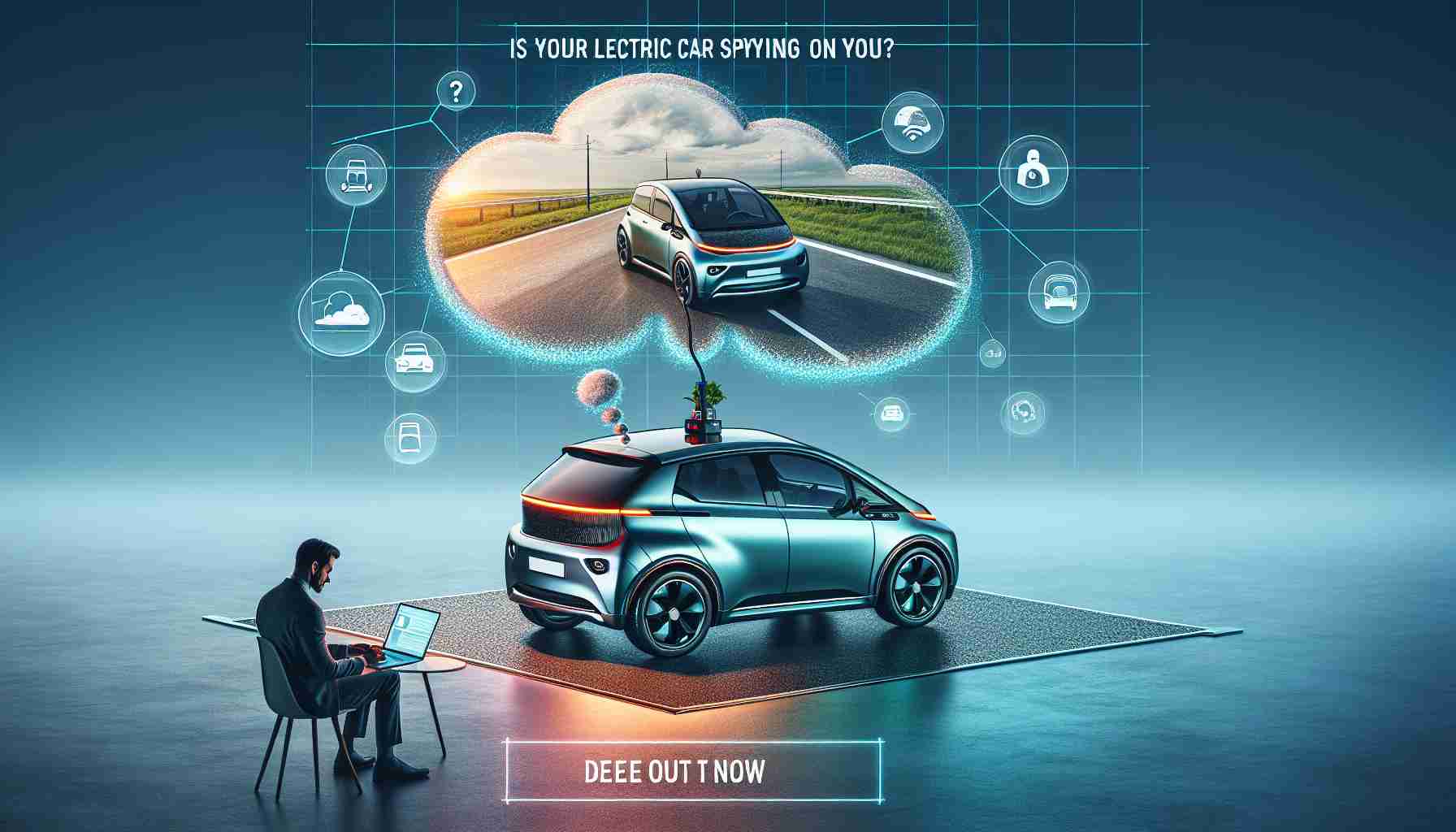The Privacy Dilemma of Electric Vehicles
Electric vehicles (EVs) have surged into everyday life, bringing touted benefits and advanced technology. These modern cars gather a vast amount of information, including driving habits, charging routines, and health diagnostics. Surprisingly, a deeper examination of EV manufacturers’ terms reveals that vehicles might collect startling personal information, extending even to private aspects like sexual activity.
While capturing geographical data can be justified, the notion of documenting such intimate details raises significant privacy concerns. Manufacturers assert that this data enhances product quality, yet it also presents risks—especially in a world where personal data can be a commodity sought by advertisers or hackers. Notably, recent data breaches have shown major corporations’ inability to safeguard consumer privacy.
A tragic incident involving an electric vehicle illustrates this risk. A soldier, in distress, used his EV to commit a destructive act in Las Vegas. Authorities quickly accessed critical information from the vehicle’s systems, highlighting both the necessity and potential dangers of continuous data collection by car makers.
In another alarming episode, nearly 800,000 Volkswagen users had their sensitive information exposed due to a cloud misconfiguration. This incident underscores the vulnerability of EV data—a stark reminder that while these automobiles may enhance our driving experiences, they also put consumer privacy at risk. Efforts to secure this data must become a priority as the EV revolution continues.
The Broader Implications of the Electric Vehicle Privacy Debate
The rise of electric vehicles (EVs) is not just a technological shift; it represents a significant cultural and societal transformation. As EVs proliferate, their involvement in our daily lives further entwines them with our personal data, fundamentally altering how we perceive privacy in the digital age. This entire ecosystem steers us toward a future where data is currency, fostering an environment where personal information could be exploited, undercovering new vulnerabilities that society must navigate.
The potential economic implications of EV data collection are profound. Companies are increasingly competing not just on the features of their cars but on the data they gather, aiming to leverage consumer patterns for profit. This has implications far beyond the automotive sector; the commodification of personal data can give rise to new business practices, where consumer privacy becomes secondary to profit-driven motives.
Environmentally, while EVs are touted for reducing emissions, the energy and resources required to support their data-gathering functions lead to questions about their overall ecological footprint. The production of batteries, for instance, poses environmental challenges, as lithium and cobalt mining can have detrimental effects on local ecosystems.
Long-term, this interplay between mobility, privacy, and data security may ignite legislative responses aimed at protecting consumer rights. As society progressively embraces EV technology, the necessity for robust regulatory frameworks to safeguard personal information will become increasingly critical. Thus, the trajectory of this modern transportation sector points toward a future where balance between innovation and privacy becomes essential.
Is Your Electric Vehicle Spying on You? Unpacking the Privacy Risks
The Privacy Dilemma of Electric Vehicles
As electric vehicles (EVs) continue to gain traction globally, the intersection of cutting-edge technology and consumer privacy has prompted substantial debate. While the benefits of EVs, such as environmental sustainability and advanced features, are widely recognized, the privacy implications of their data collection practices are more concerning.
Understanding Data Collection in EVs
Electric vehicles are equipped with various sensors and connected technologies that collect extensive data. This data typically includes:
– Driving Habits: Information about speed, braking patterns, and route choices.
– Charging Behavior: Times and locations where the vehicle is charged, along with energy consumption patterns.
– Vehicle Health Diagnostics: Notifications about maintenance needs and system performance.
However, the scope of data collection can extend beyond what many consumers might expect, raising alarms about privacy.
Privacy Risks and Concerns
Sensitive Data Exposure
The aggregation of sensitive personal data leads to significant privacy concerns. Manufacturers often justify their data collection by stating that it improves product functionality and user experience. Still, the potential for misuse remains high. The possibility that personal information—including health-related data or even intimate activities—could be collected is alarming.
Data Breaches
Data breaches are an increasing threat. In a particularly notable case, nearly 800,000 Volkswagen users had their sensitive personal information compromised due to a cloud misconfiguration. Such incidents underline the vulnerabilities in how manufacturers handle consumer data and the pressing need for robust security measures.
Real-World Implications
The implications of this data collection can be profound. For instance:
– Law Enforcement Access: In a tragic scenario, a soldier in distress used his EV to engage in destructive behavior, prompting authorities to access the vehicle’s data to gather critical information. This incident illustrated not only the potential for privacy violations but also the dual-edged sword of having detailed data available in emergency situations.
Balancing Benefits with Privacy
While EVs offer numerous advantages, including reduced carbon emissions and lower operational costs, consumers must be informed about:
– Terms of Service: EV buyers should meticulously review privacy policies and understand what data is collected and how it is used.
– Potential for Data Sale: There is a risk that collected data could be sold to third parties for advertising purposes.
Recommendations for Consumers
1. Research Before Buying: Understand the data policies of different manufacturers.
2. Opt for Transparency: Look for manufacturers that are open about their data use and offer options to limit data sharing.
3. Regularly Update Software: Keeping vehicle software updated can help mitigate security vulnerabilities.
Market Trends and Innovations
The EV market is experiencing rapid growth, predicted to reach a value exceeding $800 billion by 2027. As technology advances, manufacturers are increasingly focusing on enhancing cybersecurity measures. Innovations in data encryption, anonymization techniques, and user-controlled privacy settings are becoming essential features in modern EVs.
Conclusion
As the electric vehicle revolution continues, balancing the benefits of advanced technology with consumer privacy will be crucial. With data breaches becoming more common, manufacturers must prioritize the protection of user information to foster trust and enhance the ownership experience. For more insights into the evolving landscape of electric vehicles and privacy concerns, visit Electric Vehicle Info.


















